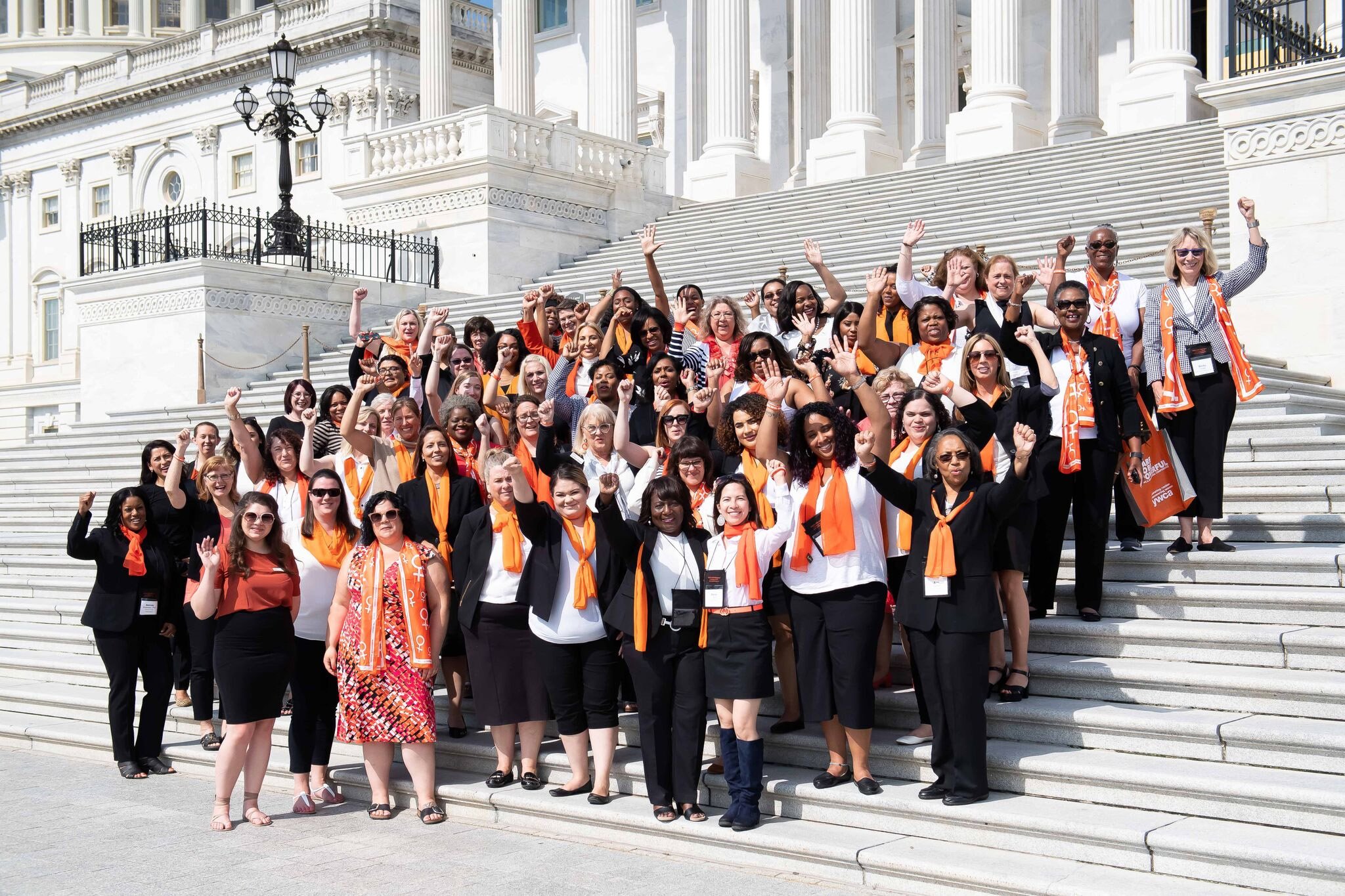
Advocacy Agenda
Informed by our 165-year history and by the expertise of our nationwide network, YWCA is carrying on its long tradition of social action and advocacy to advance our mission.
Since our inception, YWCA’s 194 local associations in 45 states and the District of Columbia have been on the frontlines of more than 1,200 communities providing child care, safety from gender-based violence, housing and other programs and services to as many as 2 million women, girls and families in a typical year. Today, with our mission and communities in mind, YWCA advocates at the federal, state, and local levels for practical solutions that meet the needs of women, girls, and marginalized communities that bring us closer to eliminating racism, empowering women, and ensuring peace, justice, freedom and dignity for all.
Federal Legislative Priorities: 118th Congress
In this moment of ongoing economic uncertainty and compounding social challenges facing our nation, YWCA is driving an inclusive agenda to address the underlying gender equity and racial justice tensions that are deeply embedded in our nation.
We are calling on members of Congress to act on the following health, economic, safety, and racial justice priority areas:
Strengthen YWCA programs and services
Safety from Gender-Based Violence
Women and girls of all ages, income levels, racial and ethnic communities, sexual orientations, gender identities, and religious affiliations continue to experience violence in the form of domestic violence, sexual assault, dating violence, stalking, and trafficking.
Child Care
Child care and early learning programs are essential for working women & for our nation’s economic future. Unfortunately, systemic barriers have disproportionately impacted left many without access to quality, affordable care.
Federal Budget & Appropriations
Every day, we see first-hand the critical difference that federal funding for housing, childcare, domestic violence, workforce development, and other services makes in communities served by YWCAs.
Strengthening the Nonprofit Sector’s Impact
The nonprofit sector is the backbone of our communities and continues to champion on-the-ground programs, human services, and educational activities for families across the country.
Advance racial justice and gender equity
Racial Justice
YWCA is committed to ensuring that everyone is afforded equal opportunity and equal protection under the law. Too often stereotypes, biases, and racial power dynamics are embedded in our laws and public policies impacting a broad range of issues.
Reproductive Justice & Abortion Access
For more than fifty years, YWCA USA has supported the reproductive freedom of all people to make fundamental decisions about whether and when to have children. The U.S. Supreme Court overturned Roe v. Wade
Women's Economic Security
Women are the primary source of financial support for many families and bear significant caretaking responsibilities at home. At YWCA, we believe no one should have to choose between their livelihoods and their health, their family, or their safety.




